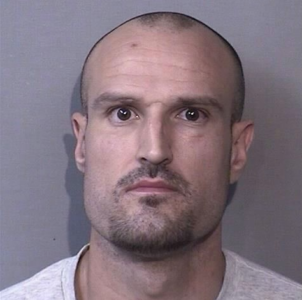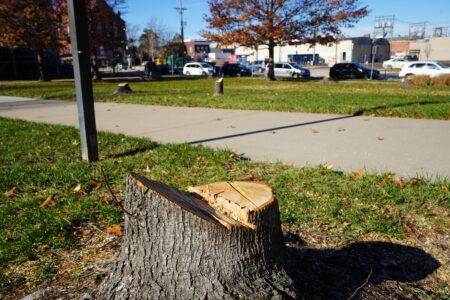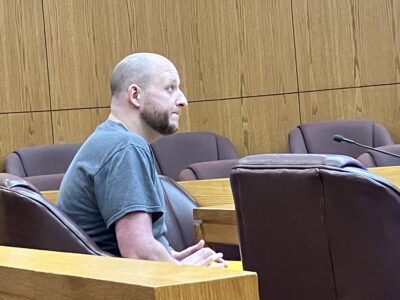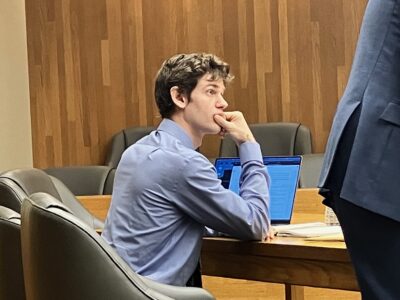Mother of baby who died at day care does not believe woman accused of murder was wrongfully convicted
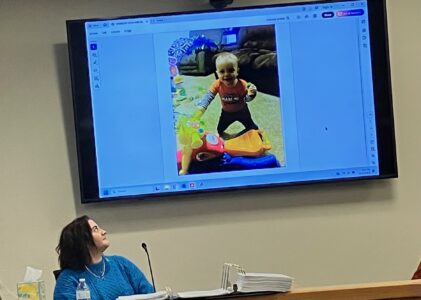
photo by: Kim Callahan/Journal-World
Kaylen Ortiz, on Thursday, Oct. 30, 2025, describes her son Oliver "Ollie" Ortiz as he appeared in a photo taken the night before he died at a Eudora day care.
Kaylen Ortiz believes that her baby boy was murdered nine years ago and that a day care employee was the killer.
An expert witness’ report that says Ortiz’s 9-month-old died by natural causes has not changed Ortiz’s mind. And she told a judge Thursday that it didn’t change the mind of the person who hired the expert either: former Douglas County District Attorney Suzanne Valdez.
Ortiz testified Thursday at the wrongful conviction trial of the day care worker, Carrody Buchhorn, who was found guilty of murdering Oliver “Ollie” Ortiz at her 2018 trial and served over five years before her conviction was overturned due to ineffective assistance of counsel. Valdez sought to retry Buchhorn, but eventually announced in 2023 that she was ceasing prosecution due to an expert’s report finding that Ollie had died of natural causes, specifically a congenital heart defect combined with infection that likely led to a heart attack or stroke.
“I told her it was bull-(expletive),” Ortiz testified that she told Valdez, and she said that Valdez agreed with her about the report but said that if they moved forward with the evidence at hand they would not get a “good result” at a retrial. Valdez then put out a press release in January 2023 saying that she did not believe the evidence at that time was likely to meet the DA’s burden of proving guilt beyond a reasonable doubt.
Buchhorn’s attorneys have cited the press release and other decisions in the long-running litigation as demonstrating Buchhorn’s innocence under Kansas’ wrongful conviction statute, entitling her to compensation and to a certificate of innocence, but attorneys for the state have vigorously fought that characterization.
Ortiz, a licensed practical nurse who worked in the neurology department at LMH Health at the time of Ollie’s death, said the report by forensic pathologist Jane Turner, who testified Tuesday, made no sense to her because she knew Ollie to be a generally healthy baby boy — she used the word “perfect” — who had exceeded all developmental milestones. Turner’s revelation that Ollie had a patent foramen ovale, or hole, in his heart — a condition Ortiz called common and usually undetected and harmless — seemed to Ortiz a nonsensical explanation for his death, she said.
She testified that as an experienced mother and a nurse she was attentive to Ollie’s health and had not observed anything that might indicate a bad heart, seizures or other serious medical condition.
She said Ollie had been attending the Sunshine Kids day care in Eudora for about six months. She said he had been diagnosed with pink eye and hand-foot-mouth disease — common childhood ailments — and had one ear infection, which had resolved. Two weeks before he died on Sept. 29, 2016, he had been diagnosed with seasonal allergies, a common cold and possibly teething, “but that’s all,” she said.
Turner had also said in her report that evidence indicated Ollie had infections, and she couldn’t rule out that he had sepsis, which Ortiz also took issue with since his heart valves would not have been accepted for donation if that were the case.
“There’s no way he was septic,” said Ortiz, who now works as the donation services coordinator for the Midwest Transplant Network.
Buchhorn testified on Wednesday that one day three weeks before his death the day care sent Ollie home because he was “lethargic” and “limp,” but Ortiz said she and her aunt, a pharmacist who frequently babysat Ollie, had not noticed any such dire symptoms in him, other than tiredness, which resolved with a nap.
Ortiz said she and her husband sometimes joked about Ollie frequently getting sent home on Thursdays from day care for some reason, which she did not elaborate on.
Ortiz also testified that she was unaware of a fracture in Ollie’s skull that was found after he died. Turner had testified that the fracture was at least several days old at the time of Ollie’s death, hence not caused by abuse that day, and could have resulted from a minor, undetectable head injury. But the coroner who had testified at Buchhorn’s trial, Dr. Erik Mitchell, regarded it as a fresh injury. Mitchell testified that Ollie had died from “depolarization” in his brain neurons caused by head trauma — testimony that Valdez said she would not have relied on in a retrial.
The state’s attorneys, Gaye Tibbets and Mackenzie Baxter, showed Ortiz a photo of Ollie taken less than 24 hours before he died. Through tears, Ortiz described Ollie as happy and playful that night and giggly the next morning. She said he waved goodbye to her for the very first time when she dropped him off at day care.
By early afternoon, though, he’d be surrounded by first responders administering CPR after Buchhorn said she found him unresponsive when she tried to wake him from a nap.
Ollie was taken to the ER at LMH, where Ortiz was working that day. She testified that when she saw him at the hospital that he had a bruised right ear and a large hematoma, or “goose egg,” on the left said of his head. When Baxter asked her if she saw other injuries, she cried and said she didn’t because she wasn’t allowed to touch him, his body having been labeled “evidence” by a crime scene investigator.
“I understood, but it broke me,” she said.
Ortiz, on cross-examination, disputed earlier references to Mitchell not having examined Ollie’s heart because she said he is the one who removed it from Ollie’s body to send to a heart pathologist and who recovered the heart valves for donation. She said she didn’t authorize the donation until Sept. 30, the day after Ollie’s death.
She also said that no one had told her Mitchell was untrustworthy or not credible and that her understanding was that any controversy was not substantive but was solely based on the word “depolarization.”
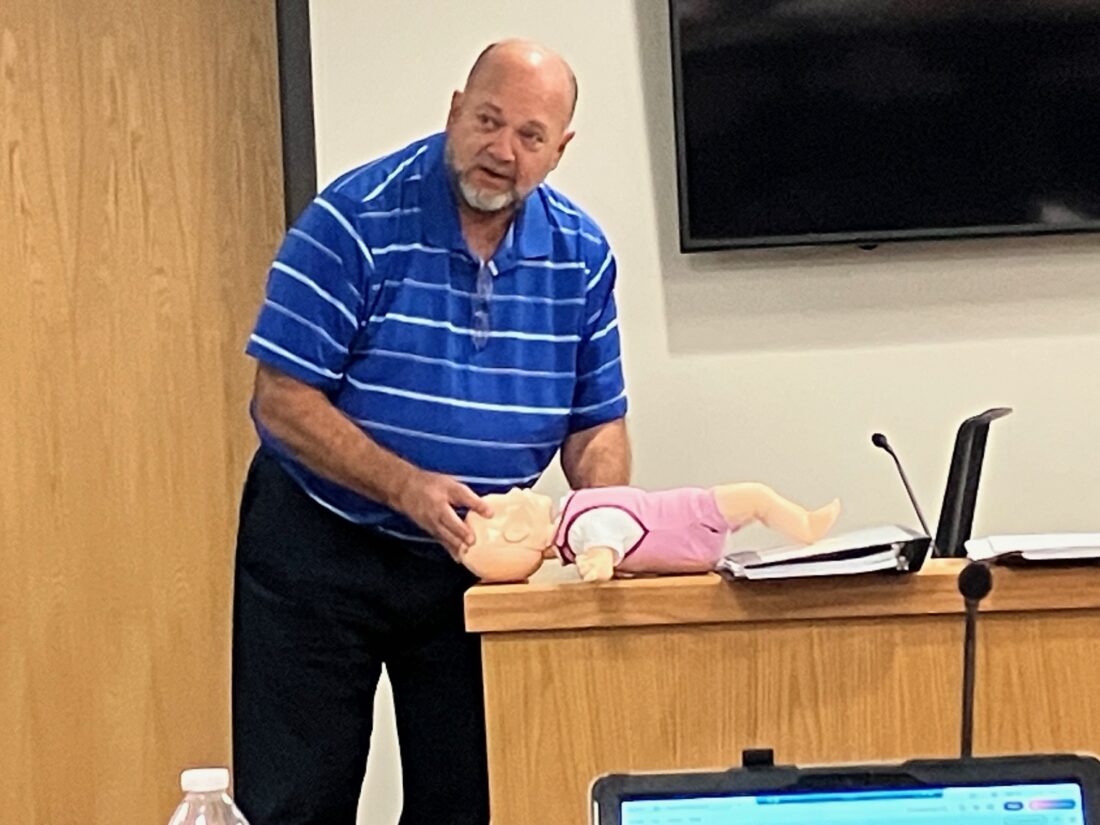
photo by: Kim Callahan/Journal-World
Former Eudora Fire Chief Ken Keiter demonstrates infant CPR Thursday, Oct. 30, 2025, in the wrongful conviction trial of Carrody Buchhorn.
Three first responders from the Eudora Fire Department testified Thursday that they did not observe any external injuries on Ollie as they were performing CPR and transporting him to the hospital. One of them, retired Eudora Fire Chief Ken Keiter, said he was the first to arrive and never detected a pulse in Ollie, although he considered him viable at first because his body was still warm. Keiter indicated that it was unlikely that Ollie would have been injured during CPR, but he would not speculate on whether that would be the case if the person giving CPR were not a trained professional.
Some earlier testimony indicated Buchhorn had performed CPR on Ollie for around 20 minutes, which the first responders on Thursday agreed would be a long time for one person to do. First-responder teams usually work in 2-minute rotations while doing CPR, they said.
Earlier in the day, Judge James McCabria heard the continuation of Buchhorn’s testimony from Wednesday. She testified that her trial and incarceration had been costly — to the extent that she had to borrow a lot of money and the family farm had to be sold — and the approximate $400,000 that might come from the state would be eaten up by what she owed. The certificate of innocence, she said, was her main desire.
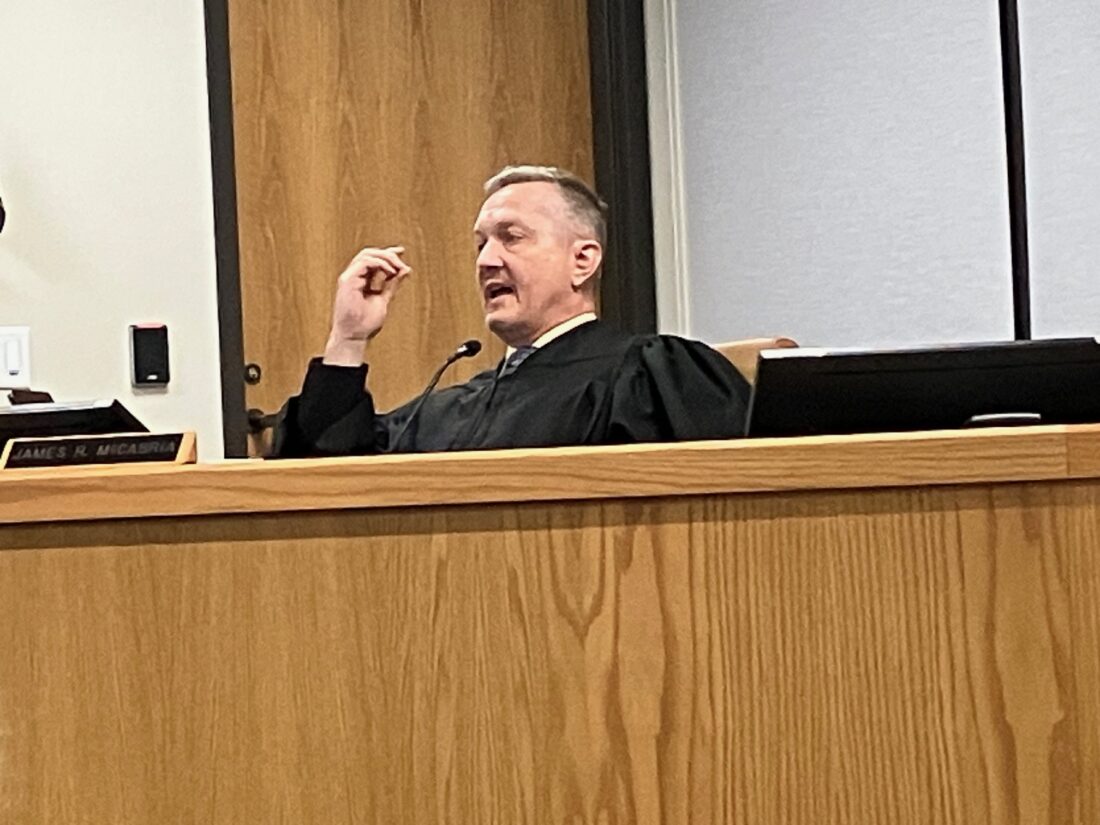
photo by: Kim Callahan/Journal-World
Judge James McCabria is pictured at the wrongful conviction trial of Carrody Buchhorn on Thursday, Oct. 30, 2025.
On cross-examination, the state’s line of questioning portrayed Buchhorn as a disgruntled employee who “hated” her employer, Gina Brunton, and feared being fired, which Buchhorn denied.
Tibbets confronted Buchhorn with a series of texts that Buchhorn wrote to her husband, including texts about a month before Ollie died in which she said “Ollie is being an asshole right now”; “Going to kill a baby”; “I’m in hell”; and “someone’s going to die.”
Buchhorn asked for more context, but the entire text chain was not read aloud. On Wednesday she and several of her relatives testified that Buchhorn cussed a lot to her husband and other adults and had been known to say “going to kill” someone as an expression of frustration that was not to be taken literally. Texts she had shared with her best friend described, sometimes with profanity, frustrations and concerns with Ollie’s crying and behaviors that worried her.
After Buchhorn’s attorneys, Bill Skepnek and Quentin Templeton, rested their case, Tibbets asked McCabria for a directed verdict, saying the plaintiffs had not met their burden of proving Buchhorn’s innocence by a preponderance of the evidence. McCabria took the request under advisement, but the state is expected to continue its case on Nov. 12 and 13, when it will likely call the death investigator; a specialist in pediatric abuse; a detective; Valdez; and Judge Mark Simpson, who prosecuted Buchhorn in 2018 when he worked for District Attorney Charles Branson.
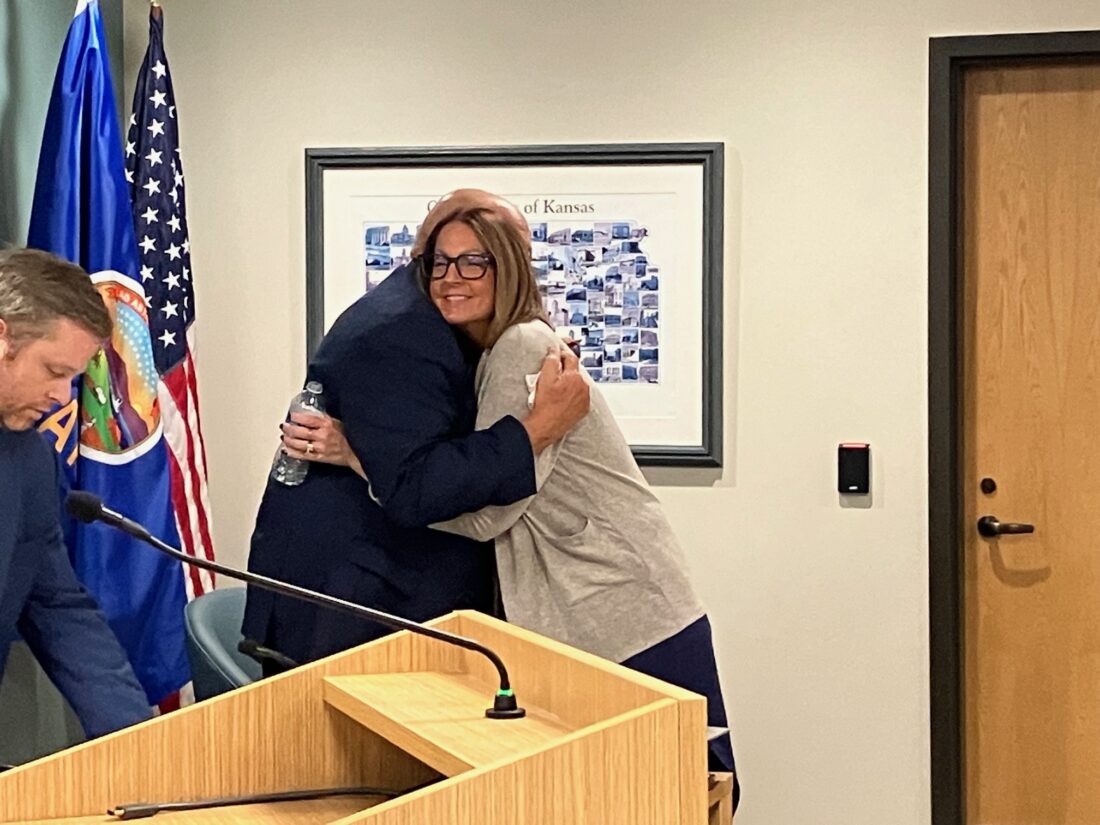
photo by: Kim Callahan/Journal-World
Carrody Buchhorn hugs attorney Bill Skepnek after her testimony Thursday, Oct. 30, in her wrongful conviction trial. Attorney Quentin Templeton is at left.


